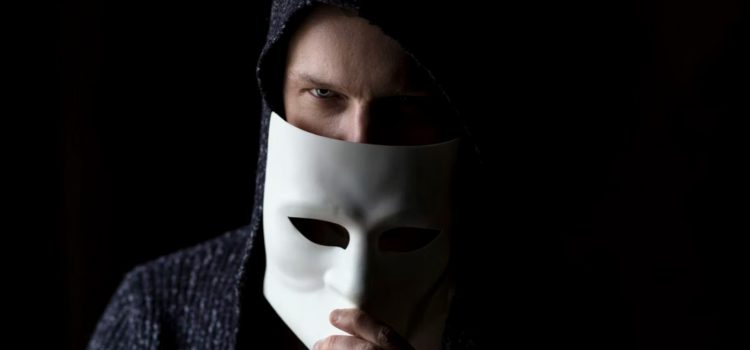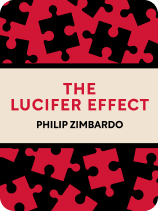

This article is an excerpt from the Shortform book guide to "The Lucifer Effect" by Philip Zimbardo. Shortform has the world's best summaries and analyses of books you should be reading.
Like this article? Sign up for a free trial here .
What is the meaning of evil? Are humans born either good or evil?
Psychologist Philip Zimbardo defines evil as any intentional harm done to innocent people. He also claims that anybody is capable of performing evil acts.
Read more to learn the meaning of evil, according to Zimbardo in his book The Lucifer Effect.
What Is the Meaning of Evil?
Most people assume that if someone does something truly evil—on the level of murder, torture, or rape—there must be something uniquely twisted about them. They’re an “evil person,” and it would be difficult or impossible to rehabilitate them. (We’ll call this the “theory of fixed morals,” as it implies that each individual’s moral compass is relatively fixed and slow or impossible to change.) But what is the meaning of evil, according to Zimbardo?
Zimbardo offers an opposing theory: He argues that any one of us could commit the worst evil imaginable if we found ourselves in the wrong situation. (We’ll call this the “theory of circumstantial morals” because it implies that each individual’s moral compass can change rapidly in response to new circumstances.)
In other words, Zimbardo argues that evildoers are ordinary people who find themselves in situations that cause them to disengage their normal sense of morality. Interviews have confirmed that many people who do great evil—terrorists, torturers, those who facilitate genocide—are otherwise psychologically healthy and rational. They’re just like any of us.
The Knobe Effect: Situational Biases Toward Each Moral Theory
Arguably, Zimbardo’s meaning of evil and view of the two theories of morality is incomplete. He implies that people tend to believe one theory or the other—either the theory of fixed morals or circumstantial morals. However, the “Knobe effect” is a psychological bias that reveals we tend to use the two different theories of morality in different situations.
The Knobe effect states that in situations where someone’s intentions are ambiguous, if the outcome is bad, we believe they intended for it to happen, and if the outcome is good, we believe they stumbled into a selfless act by accident. In other words, we assume people do evil intentionally and do good accidentally. By this logic, we’re more likely to believe the theory of fixed morals when people do evil.
However, this logic implies that the reverse is also true: We are more likely to believe the theory of circumstantial morals when people do good. Zimbardo doesn’t make this point, but intuitively, it feels accurate—imagine someone whose friends all plan to volunteer at a soup kitchen for a night. If that person decides to tag along, we likely wouldn’t call them a particularly virtuous or heroic person—the circumstances just happened to influence them to do good. In contrast, if that person’s friends instead all plan to graffiti offensive slurs on the walls of the soup kitchen and they decide to tag along, we would be more likely to use the theory of fixed morals and judge them to be an immoral, selfish person.
Powerful Institutions Contribute to Evil
Because Zimbardo’s meaning of evil says that circumstances cause people to be evil, he claims powerful institutions are to blame for establishing said circumstances. In his eyes, to effectively curb evil, we have to change the systems that give rise to the situations that encourage it.
According to Zimbardo, these institutions gain power by influencing enough people to accept their ideology—a belief system centered around a highest value that must be achieved by any means necessary. These institutions attempt to perpetuate their ideology and stay in power by relentlessly pursuing their highest value, creating the circumstances conducive to great evil in the process.
For example, Zimbardo extensively criticizes the Bush administration for its role in creating the circumstances that gave rise to the American torture and abuse of Iraqi prisoners of war at the Abu Ghraib prison. He claims that the Bush administration used the War on Terror and the ideology of “national security above all else” to convince the American population to keep them in power. In their pursuit of national security (brutally interrogating prisoners for information that would help win the Iraq War and prevent future terrorist attacks), they established circumstantial factors that directly led to torture and abuse: recreating, to an extent, the conditions of the Stanford Prison Experiment in the real prisons of Iraq and Afghanistan.

———End of Preview———
Like what you just read? Read the rest of the world's best book summary and analysis of Philip Zimbardo's "The Lucifer Effect" at Shortform .
Here's what you'll find in our full The Lucifer Effect summary :
- How ordinary people can turn into heartless killers
- Insights and criticisms of the Stanford Prison Experiment
- Tips on how to resist circumstantial influences






